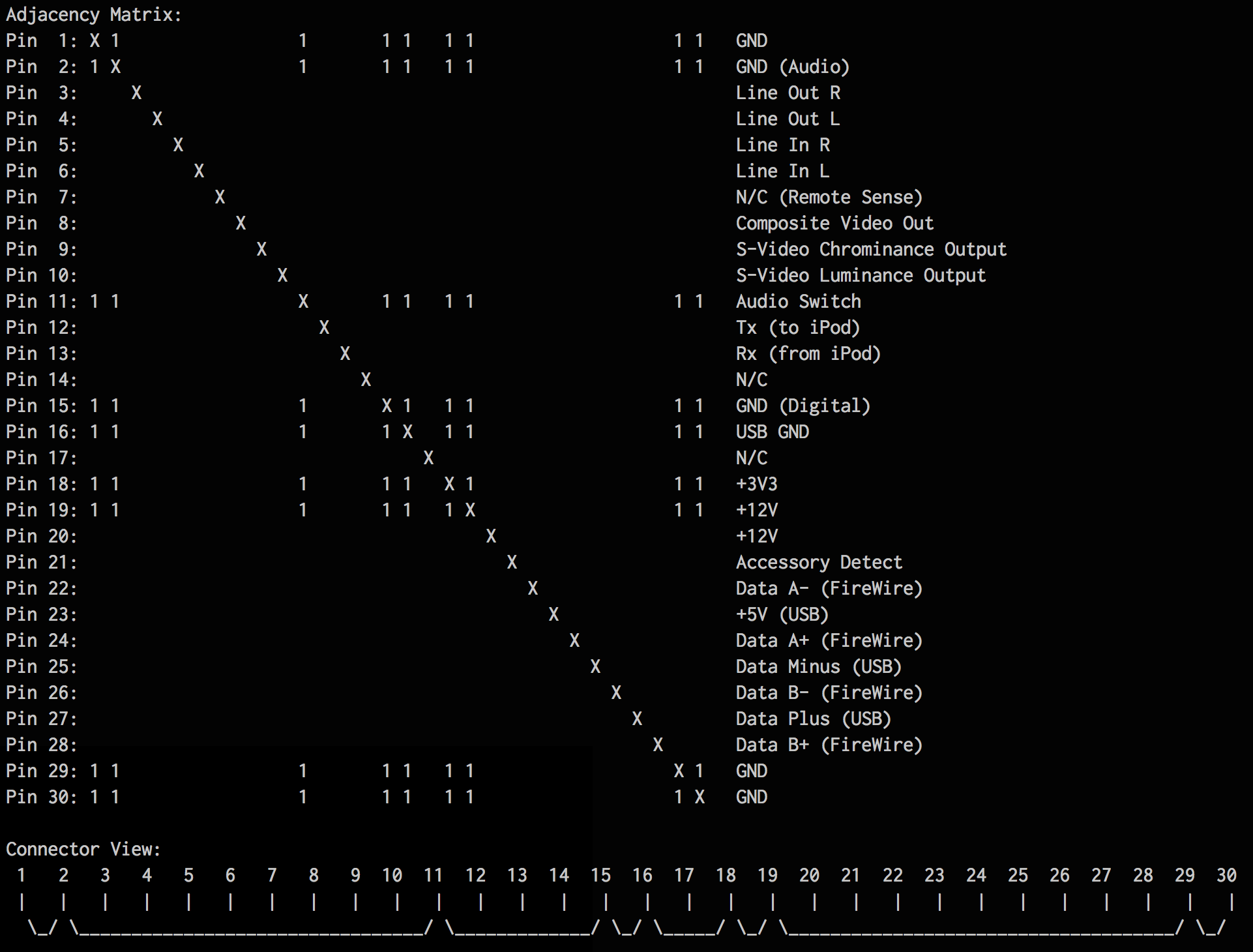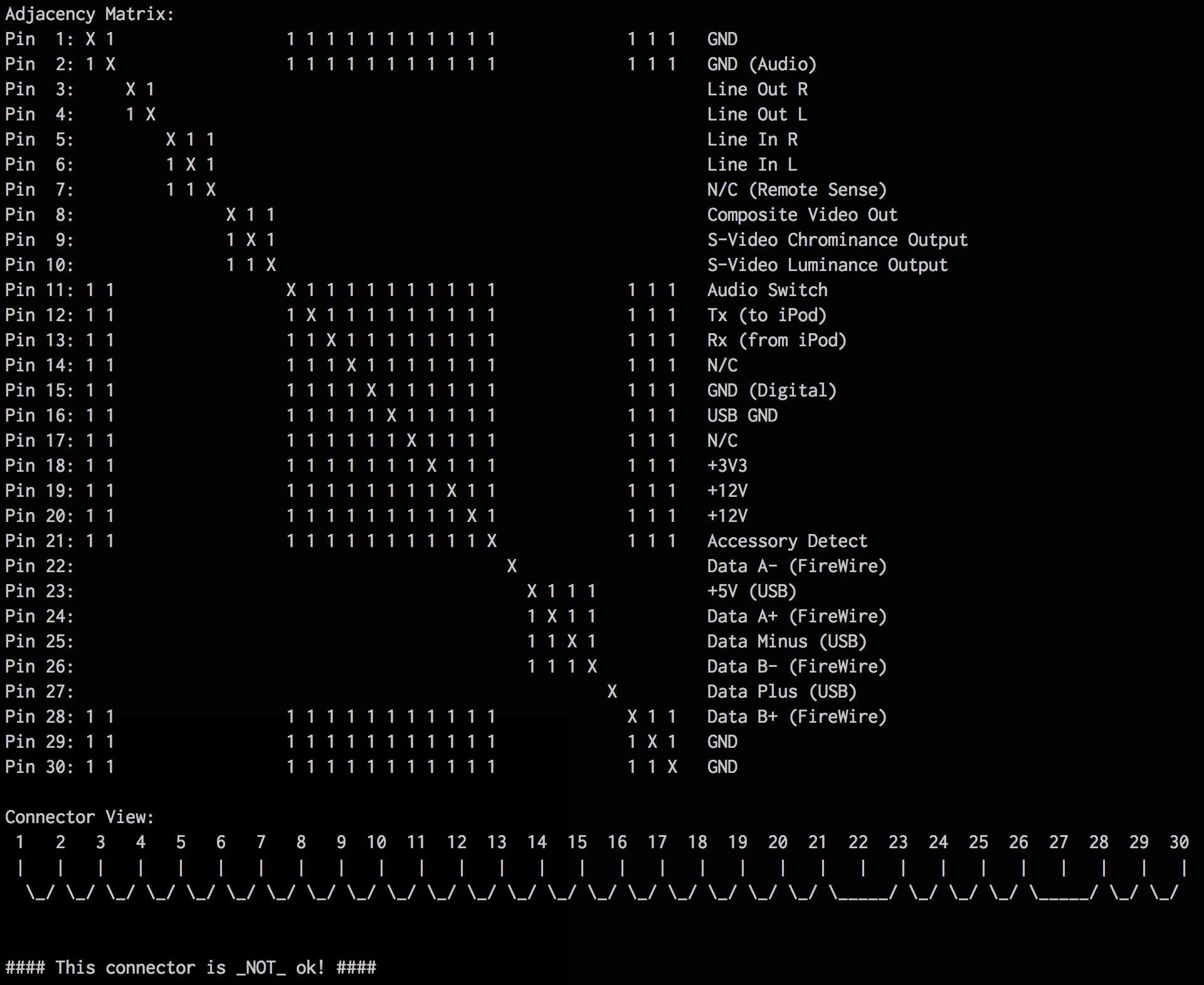Corona uses the 30pin iPhone connector to communicate with everything.
This simple project uses an STM32F4 Discovery with a custom connector PCB board to test all 30 connections for a short circuit and displays it as an adjacency matrix and as a flattened connector view.
You must connect a USB-to-Serial connector and open a terminal using picocom:
$ picocom --imap lfcrlf -b 115200 /dev/tty.usbserial-*
The output for a functioning connector looks like this:
The output for a broken connector looks like this:
This project was designed and manufactured at The Media Computing Group.
This repository is organized as follows:
- pcb contains the PCB schematics and layouts,
- src contains the application code for the tester, and
- xpcc contains the git submodule for the xpcc.io microcontroller framework.
All hardware and embedded software was designed by Niklas Hauser.
The sources are compiled using the xpcc C++ Microcontroller Framework.
xpcc is provided as a git submodule, to use it run this in the root checkirona/ directory:
$ git submodule init
$ git submodule update
We configured a headless virtual machine for VirtualBox (size: ~1.2GB), which is managed using Vagrant and contains all software required for compiling xpcc.
Install VirtualBox and Vagrant and use the VM like this:
$ vagrant up
$ vagrant ssh
Enter the src directory
$ cd /vagrant/src
To compile, execute:
$ scons
To flash the binary onto the microcontroller, execute:
$ scons program

